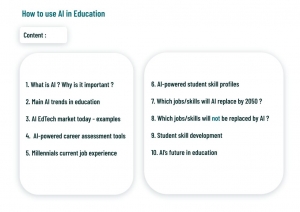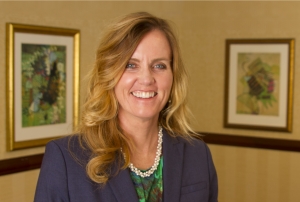Artificial Intelligence in Education
Alex Canariov
CEO, HEDKY-AI
Artificial Intelligence (AI) is definitely the buzz word today. It is quite widely spread and it’s included in a variety of software applications which we take for granted.
The Corona pandemic brought software in general to anyone’s attention all over the world. Across many economic sectors, including education, everyone is by now an expert in using virtual meeting software, such as Zoom, MS Teams or Google Meet. This Covid-19 crisis will also accelerate the pace the AI technology is to be introduced in the software we are using daily.
In education in particular, the use of technology proved to be even more vital, as during lockdowns online teaching was the only option to keep on providing education to our children. At the moment, the pandemic seems to be under control as vaccination rates are rising and the summer weather sets in in Europe. Nobody can tell for sure though if this one-in-a-generation crisis is definitely behind us. It might very well be the case that new lockdowns might be again imposed on us once the cold weather returns and numerous new variants of the virus emerge in different corners of the world.
Nevertheless, technology is here to help. It will even take us further and improve our lives as teachers, parents and students. I am talking of course about AI – the next step in how technology is to be used in education.
We are now starting a series of articles on the topic “AI in Education” with the aim to introduce the fascinating world of AI to school staff. Over the course of these articles, we will be covering subjects like AI Trends in Education, AI used as Career Assessment Tool, Types of Jobs AI will / will not take over by 2050 and which Skills will still be relevant in the future and which will become obsolete.
What is AI ?
As we plan to dive into the topic of “AI in Education”, we should first know what AI really is. In fact, it is not very easy to explain, as even AI data scientists have a hard time defining it, but in a nutshell we can say that AI is a computer system designed to simulate the human intellect. It is basically a fancy piece of software which performs various tasks only done by humans until very recently. Some basic examples of AI software are face recognition, text autocorrect or chatbots. AI technology is incorporated in very familiar software applications we use daily, such as web search (Google), digital assistants (Siri, Alexa), all social media news feeds, Google/Apple Maps or in consumer electronics products such as vacuum cleaners (e.g. Roomba). More complex AI examples include manufacturing robots, self-driving cars, virtual travel booking agents or automated financial investing.

The advantage is that now humans do not waste valuable time with boring, time consuming routine tasks and we can focus on more creative tasks, which require human interaction – in our case, teachers and school staff can focus more on education.
This is a unique opportunity to spend our working time creating more meaningful things. The evolution of AI does not mean humans will be out of work and doomed to starve to death. The Hollywood image of machines taking over and raging war against humans is, well, just that – a Hollywood interpretation of various scientific facts, portrayed in such a way to generate box office sales. AI technology currently is very far from being able to behave like Terminator. And I mean very, very far away – as in centuries. We can’t even say for sure at the moment that AI will ever be able to go past the “singularity” moment and become self-aware and start thinking on its own. So, rest assured, AI will not attack you, your children and not even your grand-grand children.
The main “threat” posed by AI is replacing humans in performing various tasks. Yes, some jobs will be lost to automation, but other types of jobs will be created to replace the obsolete ones. This is how progress works.
In education though, people should not worry as the teacher / educator jobs are among the less likely to be lost to automation. Jobs such as accountant, telemarketer or courier are among those most likely to be done by AI by 2050.
We will dive deeper into the automation risk and how can students today avoid them later in our series of articles.
In our next article we will focus on how AI came into existence as a natural next step in evolution in terms of progress and industrial revolution.
This article is provided by HEDKY-AI – Linking courses to careers. More than 90% of students using HEDKY-AI choose the right career – according to their talents. HEDKY-AI monitors student skill development from age 3 to graduation and beyond.
Using HEDKY-AI’s “Skill passport”, teachers, schools and parents can see very early in a student’s life towards which type of career they are heading to, according to their choices and results in curricular courses and extracurricular activities. If they head towards a job which is likely to be lost by automation, parents would most likely want to know this as early as possible in order to change their career goal.
To learn more about HEDKY-AI, please visit hedky.fr or get in touch with us by email at hedky@hedky.fr.
ABOUT THE AUTHOR
.
Alex Canariov is a former teacher in the international school system, currently CEO at HEDKY-AI. Alex obtained an MBA degree from Germany’s oldest business school – HHL (Handelshochschule Leipzig) and has been involved in business consulting projects since 2001 and in software projects since 2007.







